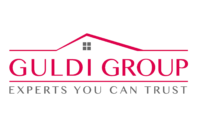 Closing costs are part of every successful home purchase. Irregardless if you are borrowing from the bank, paying it straight cash from your savings or an inheritance from a family member, this is something that you will encounter. These are the costs you need to spend for before closing the sale. It is best to have an idea what these costs are to better prepare you in taking those final steps in buying the house.
Closing costs are part of every successful home purchase. Irregardless if you are borrowing from the bank, paying it straight cash from your savings or an inheritance from a family member, this is something that you will encounter. These are the costs you need to spend for before closing the sale. It is best to have an idea what these costs are to better prepare you in taking those final steps in buying the house.
Majority of home purchase is through a mortgage taken out in a bank and other lending institutions. In this alone, there are a couple of costs at closing that you need to know to prevent surprises.
Probably the most important is the discount or the points at closing. Per point is 1% of the total amount of the mortgage. Paying upfront could lower the rate that you will pay for your loan. This forms part of your closing costs and choosing the amount to pre-pay depends on how long you intend to stay in the house. If you see the house as a long term investment, then it would be wise to put in a big amount to have a lower monthly payment. Otherwise, just leave it as is if you have no intention in staying long and are looking to sell the house over time.
There are also other closing costs such as application fee. This is usually deducted from the mortgage amount already. There are other fees like appraisal and credit report fees. Appraisal fees are for taking in the fair market value of the property and credit report fees are for checking into the borrower’s credit standing and even credit score. The real estate agent’s commission is another cost at closing. This is usually shouldered by the seller and most likely takes the form of a percentage of the closing amount rather than a fixed amount.
Other closing costs are required by the lender and can be looked as pre payment of items. The first is interest payments. Some companies require advance payment of interest calculated from the time the loan is closed up to the first payment cut off. Insurance payments comes next starting with mortgage insurance. This premium is paid by the borrower that covers and probability that you default on your payments. Hazard and even flood insurance premiums are sometimes collected at closing. These are insurance payments that protect the asset itself. Lenders would want to protect the house by getting these insurance paid at closing.
Closing costs could also include escrow payments. These are meant to pay for taxes and insurance for the property and could be collected at closing. Some lenders prefer they collect these amount from the borrower and make the payments themselves. This way, they know that taxes in the house and other insurance premiums are settled and not forgotten. This is again in their favor because defaulting on either of the two has negative effects on the house. Tax delinquencies could mean the county having a lien on the house and missing insurance payments could disqualify the house from being protected.
If you wish to know more about closing costs, get in touch with the Guldi Group. Our extensive experience in the industry allows us to assist even first-time homebuyers in identifying and estimating the closing cost that you have to expect out of a real estate sale.
To keep up with the latest in real estate be sure to subscribe to our blog by entering your email address in the upper right hand corner. You will receive our latest postings by email automatically.
Image courtesy of anankkml for FreeDigitalPhotos.net
